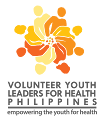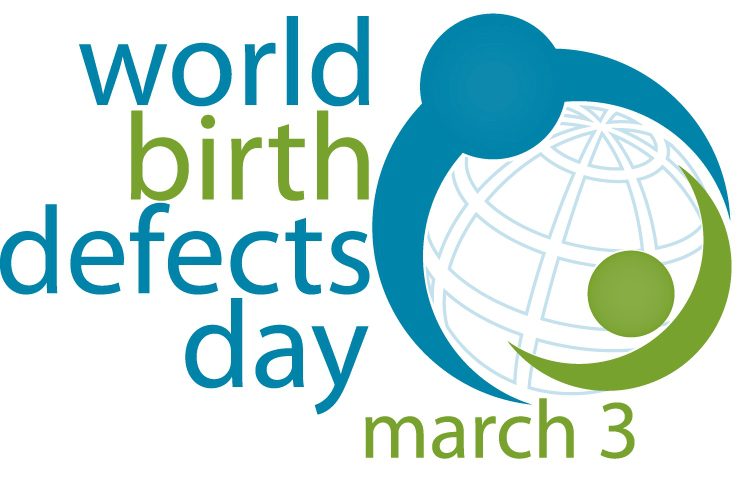Health Promotion and Advocacy Update
Series of 2016
Every year nearly 8 million babies around the world—6 percent of all births (1 in 33 babies)—are born with a serious birth defect. It is also estimated that around 3.3 million children less than 5 years of age die annually because of serious birth defects. In many countries, birth defects are one of the leading causes of death in infants and young children. In the Philippines, congenital anomalies rank among the top 20 causes of death across the life span and are the third leading cause of death in the infancy period. Babies who survive and live with these conditions are at an increased risk for long-term disabilities. The effects of birth defects are not only limited to individuals and their families since these conditions also impact their communities, and all of us.
To increase global awareness on these conditions, a growing network of local and international organizations have jointly observed and dedicated the 3rd day of March as "World Birth Defects Day"
What is World Birth Defects Day?
Specifically, The observance of World Birth Defects Day is grounded on five goals namely:
- to increase global awareness about the occurrence of birth defects;
- to increase awareness of available treatment services;
- to expand referral and care services for all persons with birth defects;
- to increase implementation of programs to prevent birth defects; and
- to encourage the public, governmental agencies, non-governmental organizations, and healthcare providers to improve the care of affected children.
About WorldBDday-Philippines
- Institute of Human Genetics-NIH, University of the Philippines Manila
- Volunteer Youth Leaders for Health-Philippines
- Newborn Screening Reference Center-NIH, University of the Philippines Manila
- Newborn Screening Centers (North Luzon, NIH, Southern Luzon, Visayas and Mindanao)
Partners from different government agencies, non-government and student organizations have also formally agreed to support the WorldBDday campaign in the Philippines. As of February 26, there are 19 organizations that have joined the campaign. Click here to see the list of official partners [LINK].
Related: Read the WordBDday Philippines Official Media Release
 |
| First Meeting of WorldBDday Partner Organizations at the Chancellor's Board Room, UP Manila |
- Health Promotion and Birth Defects Prevention. With some birth defects preventable through lifestyle changes and healthier choices prior and during preganancy, there is a need to increase the awareness of future parents on such strategies that will provide each baby a great and healthy start.
- Birth Defects Surveillance. Birth defects surveillance is important in finding and collecting information about the prevalence and possible causes of birth defects. The data from birth defects tracking systems are useful to public health officials, policymakers, and scientists. Still, there is a need to intensify birth defects surveillance in the country.
- Research. With the causes of most birth defects remaining unknown, supporting birth defects research is important in order to determine underlying causes and develop measures for birth defects prevention.
 |
| More than half of the campaign social media reach came from the Twiter BuzzDay and the Thunderclap. Photo: ICBDSR |
An international media toolkit on WorldBDday was made available by the ICBDSR. Download a copy of the WorldBDday Toolkit [LINK]
For interested institutions and organizations in the Philippines, you may contact the WorldBDday-PH Secretariat (worldbddayph@gmail.com) to learn more on how to become a PHL partner organization.
4. Click "Authorize App" to allow Thunderclap to post the message on your behalf.
After these, Thunderclap will be able to publish the WorldBDday post on your timeline on March 3.
To learn more about Thunderclap, visit https://www.thunderclap.it/faq
Support the #WorldBDday campaign by sharing your personal thoughts or by posting any of the suggested posts on Facebook and Twitter. Do not forget to use the hashtag #WorldBDday (not case sensitive) to your tweets.
I’m ready to raise awareness on March 3 because birth defects are common, critical and costly! #WorldBDday
Join me March 3 to promote World Birth Defects Day to improve prevention and research worldwide #WorldBDday
On March 3 let’s spread the word – every child born with a birth defect has the right to have a full and happy life #WorldBDday
Birth defects may result in long-term disability, placing a huge burden on families & health-care systems around the world #WorldBDday
Birth defects survivors may suffer lifetime disability but good health care services may improve their quality of life. #WorldBDday
Did you know that 1 in 100 newborn has a heart defect? #WorldBDday
Birth defects affect 1 in 33 infants and result in approximately 3.2 million birth defect-related disabilities every year #WorldBDday
Too few countries have a birth defects surveillance program. Why not in all countries? #WorldBDday
An estimated 270,000 newborns die during the first 28 days of life every year from birth defects #WorldBDday
Did you know? Intake of 400 micrograms of folic acid daily can prevent occurrence of neural tube defects (NTD) by up to 70% #WorldBDday
Did you know? Taking folic acid supplements is the only neural tube defect (NTD) prevention method proven to date #WorldBDday
In PH, congenital anomalies are among the top 10 causes of infant mortality for the past 50 years (DOH) #WorldBDday
The existing birth defects surveillance project in the PH is led by the Institute of Human Genetics,NIH-UP Manila @IHGenetics #WorldBDday
Currently, newborn screening in the PH can detect up to 28 disorders #NBSsaves @newbornscreenph #WorldBDday
Babies with metabolic disorders look normal at birth. Some Inborn errors of metabolism are detected through newborn screening #WorldBDday
Alam mo ba? Ilan sa mga birth defects ay maiiwasan sa pagsagawa ng akmang hakbang bago magbuntis at habang nagbubuntis #WorldBDday
Paigtingin ang National Surveillance System ng birth defects sa Pilipinas! #WorldBDdayJoin the Twitter BuzzDay on March 3
On March 3, share your story about the impact of birth defects on you, your child or someone you know. With our partners, we’ll be urging policymakers, researchers, health care providers and citizens across the globe to help improve birth defects surveillance, prevention, care, and research worldwide.
Plan to post one or more messages using #WorldBDday at some point during the day. Everyone is also invited to retweet both promotional and day-of messages to build the buzz for the day.
Download Materials and Update Your Social Media Profile
In preparation for WorldBDday, we would like to invite our partners to update their social media profile (Facebook Profile Picture and Cover Photo), and banner templates for partners.
Suggested Facebook Profile Pic and Cover Photo
https://www.dropbox.com/sh/3ojwo4foocsquor/AABmGEudRyE9gZVGmoqlBvS6a?dl=0
Fansigns
https://www.dropbox.com/sh/uy7wzlnghm2hafd/AADo7s6QVfmbZCebKXzvFbTqa?dl=0
Poster and Banner Templates
https://www.dropbox.com/sh/82b3rgch9cqdlbj/AABIdy3_BnQshMCCe24wnuCQa?dl=0
Media Toolkit
https://www.dropbox.com/sh/4eyfcgl1hcbm7wv/AAB9ZQo7SBBAXo27r6hsxj0Fa?dl=0
Presentations
https://www.dropbox.com/sh/6ne4tkaiioap5a4/AAC2piODSmk42GGZQQ9dcKeZa?dl=0
Birth defects refer to any structural or metabolic abnormality most often present at birth, identified prenatally (before birth) or later in life. The International Clearinghouse for Birth Defects Surveillance and Research (ICBDSR) prepared a Powerpoint Presentation on Birth Defects, get a copy through this link [LINK].
To learn more about birth defects (congenital anomalies), here are some recommended pages to visit:
- World Health Organization. http://www.who.int/mediacentre/factsheets/fs370/en/
- World Health Organization. http://www.who.int/topics/congenital_anomalies/en/
- March of Dimes. http://www.marchofdimes.org/baby/birth-defects.aspx
- US Centers for Disease Control and Prevention - National Center on Birth Defects and Developmental Disabilities. http://cdc.gov/ncbddd
- US National Birth Defects Prevention Network (NBDPN). http://www.nbdpn.org/
Contact Us! Coordinate with the WorldBDday-PHL Secretariat
Interested parties may contact the WorldBDDay-Philippines Secretariat through the Institute of Human Genetics (Tel. 526-1725/310-1780 loc 108/Fax 526-9997/email worldbddayph@gmail.com) and the WorldBDday Philippines Facebook Page (fb.com/worldbddayph).# (RPascual)






















